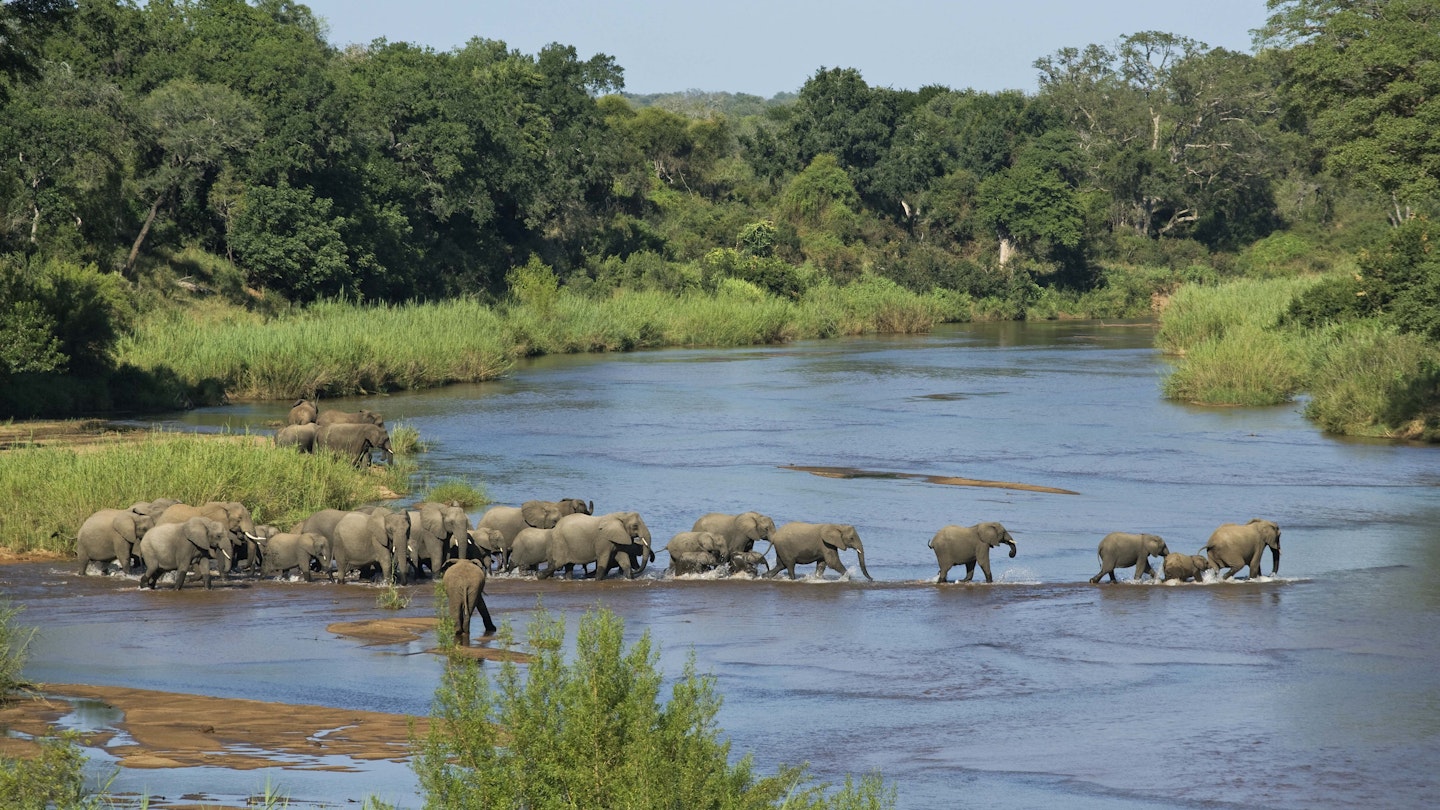Explore Kruger National Park with iBestTravel
As you sit back, sipping iced tea, wildlife unfolds before your eyes in Kruger National Park, South Africa’s premier wildlife destination. The park offers an abundance of experiences that unfold from the moment you arrive, making it an extraordinary location for nature enthusiasts and travelers alike.
Why Visit Kruger National Park?
Kruger National Park is easily accessible and renowned for its self-drive safari opportunities. This destination showcases the iconic Big Five—lion, leopard, elephant, buffalo, and rhino—as well as many other remarkable species, including impala, zebra, giraffe, and hippos.
Although the most challenging aspect of your journey may be planning your accommodations during peak season, the overall layout of the park ensures a safe and enjoyable visit for everyone, no matter their budget or mobility.
Ideal Timing for a Visit
Kruger National Park can be visited at any time; however, the dry winter months, from May to September, are generally considered the best for wildlife viewing. During this period, diminished vegetation makes it easier to spot animals congregating around dwindling waterholes. Consequently, expect higher visitor numbers, especially in July and August.
The summer months, particularly December and January, experience warmer weather and increased humidity, coinciding with school holidays. While spotting wildlife may be more challenging during this time, the park bursts with life, featuring numerous newborn animals hidden within lush foliage.
Recommended Duration of Stay
While Kruger National Park is rewarding even for brief visits, extending your stay increases your chances of spotting wildlife. A five-day trip is ideal for those with a general interest in wildlife, allowing ample time to explore key areas, enjoy game drives, and appreciate the diversity of flora and fauna the park has to offer.
Accessing Kruger National Park
Kruger Mpumalanga International Airport serves as a gateway to the park with regular flights from Johannesburg. Following a short drive of about 90 minutes by car or taxi, you will reach the main camp, Skukuza. Visitors can enter through one of the nine main gates while adhering to strict park speed limits and guidelines for safety.
Getting Around the Park
Inside the park, visitors can choose between organized drives and self-driving options. The freedom of exploring Kruger at your own pace offers the unique advantage of spending extended time observing wildlife without pressure. All main gravel roads are accessible, making it an affordable option for self-driving adventurers.
Top Activities in Kruger
Game Drives
Despite the early mornings and chilling temperatures, game drives provide an unparalleled opportunity to see wildlife. Skilled driver-guides know where to find lions and can make spotting local fauna exciting, whether tracking a waterbuck or observing unusual animals like mongooses.
Guided Walks
Exploring the park on foot allows you to experience the true scale of Kruger’s wildlife. Guided walks last around three hours, giving visitors rare close encounters with elephants, rhinos, and hippos while learning about the ecosystem under expert supervision.
Wildlife Observation
With two million hectares of wilderness, Kruger is ideal for those who enjoy simply observing wildlife. Each camp often offers fantastic viewing spots overlooking rivers or watering holes, where visitors can relax and witness the day-to-day activities of the park’s inhabitants.
Night Drives
Experience nighttime in Kruger through organized guided night drives. This unique adventure reveals the park’s nocturnal wildlife and provides an entirely different perspective of the environment, where creatures like elephants and leopards emerge into the night.
Luxurious Retreats
After a few days in the park, you may well desire some luxury. Consider spending a night or two in nearby luxurious lodges that enhance your safari experience with private game drives and local insights into the unique wilderness of Kruger.
Wildlife Watching and Birding
If you’re a bird enthusiast, Kruger National Park won’t disappoint. Offering over 500 species of birds, the park presents a unique opportunity for memorable sightings, from the tallest stork to the largest eagle. Be sure to have binoculars handy and perhaps a field guide to help in identifying various species.
Budgeting for Your Visit
Visiting Kruger National Park is quite manageable, especially when comparing the cost of self-guided trips with guided tours offered elsewhere. Essential expenses to consider include accommodation, park entry fees, and additional activities like guided walks or game drives. Here’s a quick breakdown:
- Daily conservation fee: R486 ($27)
- One-person tent per night: R450 ($25)
- Two-person self-catering cabin per night: from R830 ($45)
- Double-room in a Kruger lodge per night: from R3976 ($225)
- Daily rate of car (sedan) hire from airport: R285 ($16)
Safety in the Park
While encountering wild animals can be thrilling, it’s essential to follow park regulations to ensure personal safety. Maintain distance from wildlife, and follow all guidelines provided during guided tours. Adherence to these rules significantly diminishes the likelihood of dangerous encounters.
Final Thoughts
Planning your visit to Kruger National Park can be an enriching adventure filled with extraordinary wildlife experiences. Ensure to pack appropriately, respect the natural environment, and immerse yourself in the surrounding awe-inspiring wilderness.




